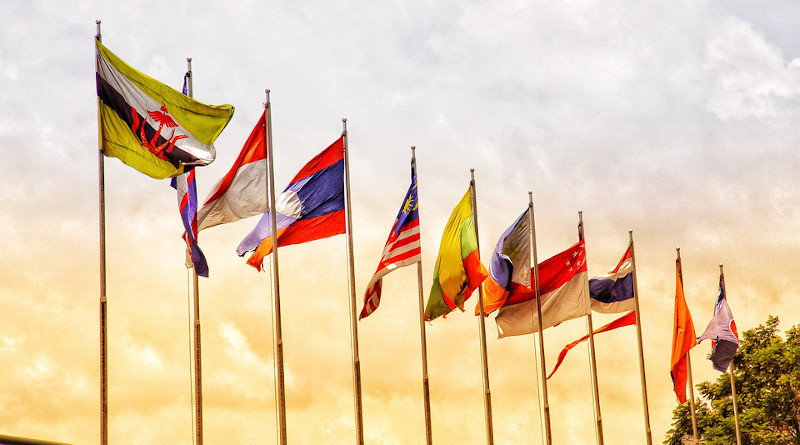Reducing ASEAN’s Trade Compliance Costs – Analysis
By Sithanonxay Suvannaphakdy*
The ongoing COVID-19 pandemic has disrupted regional trade flows and highlighted the importance of facilitating goods trade among ASEAN member states. In March, the World Trade Organization (WTO) predicted that global merchandise trade volume is expected to increase by 8 per cent in 2021 and 4 per cent in 2022, after falling by 5.3 per cent in 2020. Reducing high trade compliance costs could boost ASEAN’s trade recovery.
In Asia, growth of merchandise exports is expected to increase from 0.3 per cent in 2020 to 8.4 per cent in 2021 and 3.5 percent in 2022. But as of June this year, only 3.2 per cent of ASEAN’s total population has been fully vaccinated. Low vaccination rates across ASEAN and new waves of COVID-19 infections coupled with temporary export restrictions on food and medical supplies could reduce the speed of the regional recovery. ASEAN should accelerate vaccinations to reduce the risk of further COVID-19 outbreaks and enhance regional value chains to shore up the recovery.
ASEAN traders, freight forwarders and truck operators must comply with different documentary and procedural requirements imposed by member countries. The World Bank’s Doing Business database reveals that the number of documents required for imports ranges from five in Singapore and six in the Philippines to eight in Malaysia and Vietnam, nine in Cambodia, Indonesia and Thailand and ten in Laos and Myanmar. Costs of documentary compliance for imports range from about US$40 in Singapore and Thailand to US$60 in Malaysia, US$115 in Laos, US$120 in Cambodia, US$164 in Indonesia, US$183 in Vietnam and US$210 in Myanmar.
High trade compliance costs impede the development of regional value chains through which goods cross borders multiple times. COVID-19 containment measures such as mandatory testing and 14-day quarantine periods for truck drivers add to complex documentary requirements and their associated costs.
In November 2020, the ASEAN Secretariat published the ASEAN Comprehensive Recovery Framework (ACRF) and its implementation plan, which set out strategies and identified measures for recovery in line with sectoral and regional priorities. The ACRF trade facilitation measures include the harmonisation of standards for essential goods and the expansion of the ASEAN Single Window (ASW) to ASEAN dialogue partners. This aims to reduce compliance costs and procedural obstacles for traders. These initiatives are crucial for accelerating reforms on non-tariff measures and trade facilitation but will only enhance regional trade flows in the medium term.
The ASW took 14 years to establish. It connects and integrates the National Single Window (NSW) for the electronic exchange of trade-related documents among ASEAN member states. Three key challenges for establishing the ASW included different customs regimes and legislation, different levels of automation and the high financial costs of establishing NSWs in member states.
ASEAN members should provide additional trade facilitation measures to trusted traders and providers of logistics services under Article 7.7 of the WTO’s Trade Facilitation Agreement. This article requires WTO members, including all ASEAN member states, to provide additional trade facilitation measures related to import, export or transit formalities and procedures to operators who qualify as authorised economic operators (AEOs) according to specified criteria. Potential AEOs include traders and logistics services providers such as customs agents, truck operators and freight forwarders.
If Article 7.7 is fully implemented, there will be fewer physical inspections, faster release times and reduced documentation and data requirements for AEO companies operating across ASEAN. Although data on clearance times for AEO companies in ASEAN are not available, the implementation of the AEO program in Brazil shows that the average export and import clearance times for AEO companies are 65 per cent and 81 per cent faster respectively than for non-AEO companies.
Customs and other border authorities could better allocate their resources to riskier shipment inspections and more complex procedures due to enhanced supply chain security. The recognition of AEOs as secure and safe business partners should also improve the relationship between them and border authorities.
ASEAN members are at different stages in implementing Article 7.7. The implementation commitments notified to the WTO reveal that Indonesia, Malaysia, the Philippines, Singapore and Thailand have been implementing the AEO scheme’s obligations since February 2017. Brunei and Vietnam will be ready to do so in February 2022 and January 2024, respectively. Cambodia, Laos, and Myanmar plan to implement Article 7.7 after a transition period but are yet to determine definitive dates of implementation.
The use of the AEO criteria should ensure a mutual recognition arrangement (MRA) of the WTO’s AEO scheme at bilateral and regional levels in ASEAN. MRAs may be established among ASEAN’s developing economies and then expanded to the rest of ASEAN member states. Greater coverage of MRAs will improve trade efficiency through reduced time and costs associated with cross-border customs controls.
This will complement efforts to expand the ASW and streamline non-tariff measures in the region and further boost ASEAN’s internal and external trade by making it simpler, faster and more cost-effective for AEO companies.
*About the author: Sithanonxay Suvannaphakdy is Lead Researcher (Economic Affairs) in the ASEAN Studies Centre at the ISEAS–Yusof Ishak Institute, Singapore.
Source: This article was published by East Asia Forum

